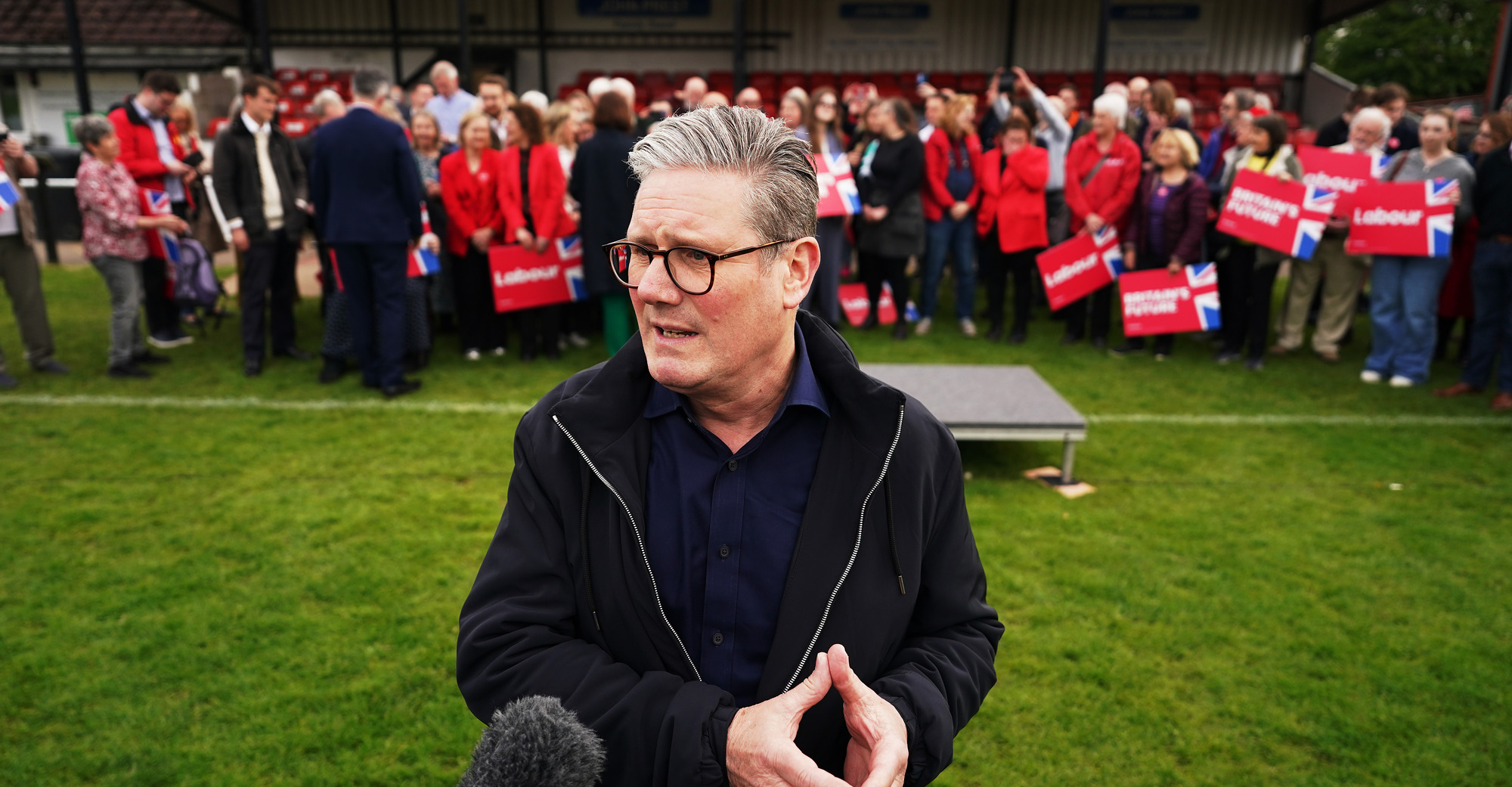The 2024 local elections have left Labour with plenty to be chipper about. The party has gained control of a fine spread of councils — such as Nuneaton & Bedworth in Warwickshire, Milton Keynes in Buckinghamshire, Thurrock in Essex, Rushmoor in Hampshire, and Adur in West Sussex. All, to varying degrees, are Leave-voting English local areas.
But a pattern has emerged that is concerning some in the Labour Party: the degree of losses it has suffered in parts of the country with relatively high Muslim populations. Compared to the rest of the country, Labour’s vote share is down in such areas.
Bucking the wider national trend, Labour lost control of Oldham Council. While local party leader Arooj Shah denied this was down to Sir Keir Starmer’s positioning on Gaza (it is worth noting the historic gross mismanagement of cases of group-based child sexual exploitation in the area), it is likely to have been a factor.
Labour would have hoped to have gained control of Bolton. But it didn’t, partly down to the “Gaza effect”, with victorious, independent, pro-ceasefire candidates such as Ayyub Chota Patel in Rumworth ward dedicating their wins to the Palestinian people. Pro-Palestine independents also had a field day in Blackburn, gaining Muslim-heavy wards from Labour such as Central Blackburn and Bastwell & Daisyfield.
Other cases of independents gaining seats from Labour in northern English areas with relatively high Muslim populations include Daneshouse with Stoneyholme in Burnley. There was also a surge in independent representation in Bradford’s inner-city wards. Among those successful candidates were Mohammed Ali Islam, 20, Ismail Uddin, 19, and 18-year-old Atira Malik, who is currently studying for her A-Levels.
Meanwhile, the Workers Party of Britain (WPB) gained two seats in Rochdale (where leader George Galloway pulled off his stunning parliamentary by-election win), as well as winning Park ward in Calderdale, West Yorkshire, which covers the Muslim-heavy area to the west of Halifax.
Having more Muslim voters distancing themselves from Starmer’s Labour and entertaining other options is not a bad thing for British politics. It could foster the emergence of authentic, economically Left-leaning, socially conservative political representation that also challenges transatlantic foreign policy orthodoxy. It is also plausible that Labour could win a parliamentary majority with a large increase in provincial white British support and much-reduced British Muslim support, shattering the myth that the party is hyper-dependent on Muslim “vote banks” for its electoral success.
With the general Tory collapse, there is also the possibility that Labour is rebuilding support among ethnic minority non-Muslims who may not be as emotionally invested in developments in the Middle East and have a history of flirting with the possibility of voting Conservative. It seems like Labour is losing support among working-class Muslims in northern England, but how is it doing with Gujarati Hindus in Nuneaton, Punjabi Sikhs in Coventry, Goan Catholics in Swindon, and Nigerian Protestants in Thurrock?
How much of a headache Labour would have had over declining British Muslim support depended on the outcome of the London and West Midlands mayoral elections. In the race to be mayor of London, early signs suggested that turnout would be notably higher in outer boroughs such as Bromley and Bexley when compared to more urban and Muslim-concentrated boroughs such as Tower Hamlets and Newham — to the benefit of Tory challenger Susan Hall.
Despite this, Labour’s Sadiq Khan won a historic third term, winning by 11 percentage points. However, the involvement of pro-Gaza independent candidate Akhmed Yakoob has undoubtedly complicated matters for Labour in the West Midlands mayoral election, which has gone right down to the wire (with Sandwell the remaining local authority to declare its results at the time of writing).
The growing volatility within the British Muslim electorate is making the urban political landscape more interesting. Labour will be hoping that it when comes to the forthcoming general election, many British Muslim voters who voted for pro-Palestine independents in these local elections will turn their focus to the domestic bread-and-butter issues such as the cost-of-living crisis, the NHS, and employment — making a direct choice between their natural party and the Conservatives.
What is more likely is that Starmer’s Labour has lost some British Muslim voters for good, who are instead entertaining the likes of Galloway’s WPB and local independent candidates. It is unlikely that this will leave a huge dent on the party on election day, but if the conflict drags on, it may leave the Labour leader with fewer seats than he might have hoped.











Join the discussion
Join like minded readers that support our journalism by becoming a paid subscriber
To join the discussion in the comments, become a paid subscriber.
Join like minded readers that support our journalism, read unlimited articles and enjoy other subscriber-only benefits.
Subscribe